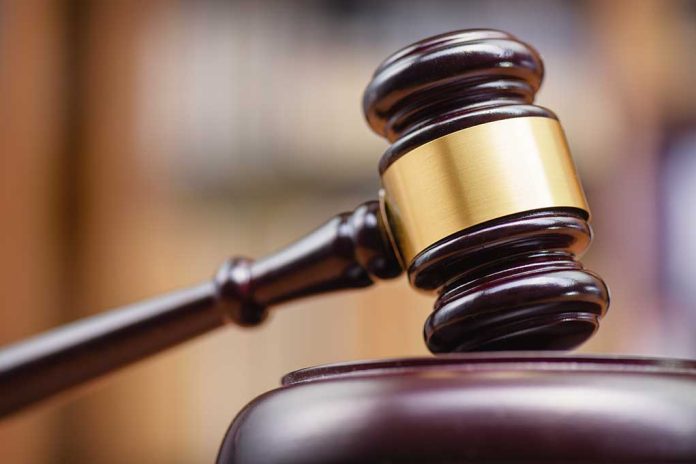
Iowa’s voter roll controversy intensifies as a federal judge upholds the state’s right to challenge potential noncitizen votes, sparking a heated debate on election security and voter rights.
At a Glance
- Federal judge rules Iowa can challenge potential noncitizen votes.
- ACLU lawsuit filed on behalf of naturalized citizens rejected.
- Iowa officials claim 250 noncitizens registered to vote.
- Controversy stems from self-reported non-citizen status on driver’s license applications.
- Federal agencies refuse to share citizenship data with Iowa.
Iowa’s Voter Roll Controversy Unfolds
Iowa’s election security efforts have taken center stage as a federal judge ruled that the state can continue challenging the validity of ballots from potential noncitizens. This decision comes despite concerns raised by advocacy groups about potentially disenfranchising newly naturalized U.S. citizens. The controversy began when approximately 2,100 individuals in Iowa self-reported as non-citizens when applying for driver’s licenses, prompting a closer examination of voter registration reliability.
Iowa Secretary of State Paul D. Pate sought verification from the U.S. Citizenship and Immigration Services (USCIS), which confirmed that at least 250 individuals on the voter rolls were non-citizens. However, USCIS withheld the specific names, citing privacy policies. This lack of detailed information led to a complex legal and administrative battle, with Pate seeking intervention from both state and federal oversight bodies.
Legal Battle and Federal Judge’s Ruling
The American Civil Liberties Union (ACLU) filed a lawsuit on behalf of the League of Latin American Citizens of Iowa and four recently naturalized citizens, challenging Iowa’s efforts to scrutinize potential noncitizen voters. However, Judge Stephen Locher sided with the state, citing recent U.S. Supreme Court decisions that emphasize caution in granting last-minute injunctive relief in election-related cases.
The ruling allows Iowa to continue its process of challenging potentially invalid registrations while providing safeguards for voters whose citizenship status may be in question. Rather than removing individuals from voter rolls outright, the state will use provisional ballots, allowing those who can prove their citizenship to have their votes counted.
Federal Agencies’ Role and Data Sharing Challenges
A significant aspect of this controversy is the federal government’s refusal to share specific citizenship information with Iowa officials. Despite Secretary Pate’s requests to USCIS and the Department of Justice for data verification, both agencies declined to provide the necessary details. This lack of cooperation prompted Pate to seek assistance from Iowa Senators Chuck Grassley and Joni Ernst, who demanded that USCIS provide the data by November 1. However, the information was not forthcoming.
“We are obviously disappointed with the court’s decision not to outright block Secretary Pate’s directive, which we still fear threatens to disenfranchise eligible voters simply because they are people who became citizens in the past several years” – Rita Bettis Austen
The federal government’s stance is particularly noteworthy given its previous actions in similar cases. In Virginia, for instance, the Department of Justice sued the state for removing non-citizens from voter rolls after a clarification process, claiming it was burdensome. This inconsistency in approach has raised questions about the federal government’s role in maintaining accurate voter rolls across states.
Implications for Iowa’s Elections
While the controversy continues, it’s important to note that the number of potential noncitizen voters in Iowa represents a small fraction of the state’s 2.2 million registered voters. Nevertheless, the issue has become a focal point in the broader national conflict between Democrats and Republicans over voting rights and election security.
“Today’s court victory is a guarantee for all Iowans that their votes will count and not be canceled out by illegal votes” – Brenna Bird
As Iowa moves forward with its plan to use provisional ballots for voters whose citizenship status is in question, the state faces the challenge of balancing election security with ensuring that eligible voters, particularly newly naturalized citizens, are not disenfranchised. The outcome of this controversy could have far-reaching implications for how other states approach similar issues in the future, potentially shaping the landscape of election administration and voter rights across the nation.
Sources:
- Federal judge lets Iowa keep challenging voter rolls although naturalized citizens may be affected
- DHS Says Iowa Has Hundreds Of Noncitizens On Voter Rolls, But Won’t Tell State Who They Are
- Federal judge lets Iowa keep challenging voter rolls although naturalized citizens may be affected







